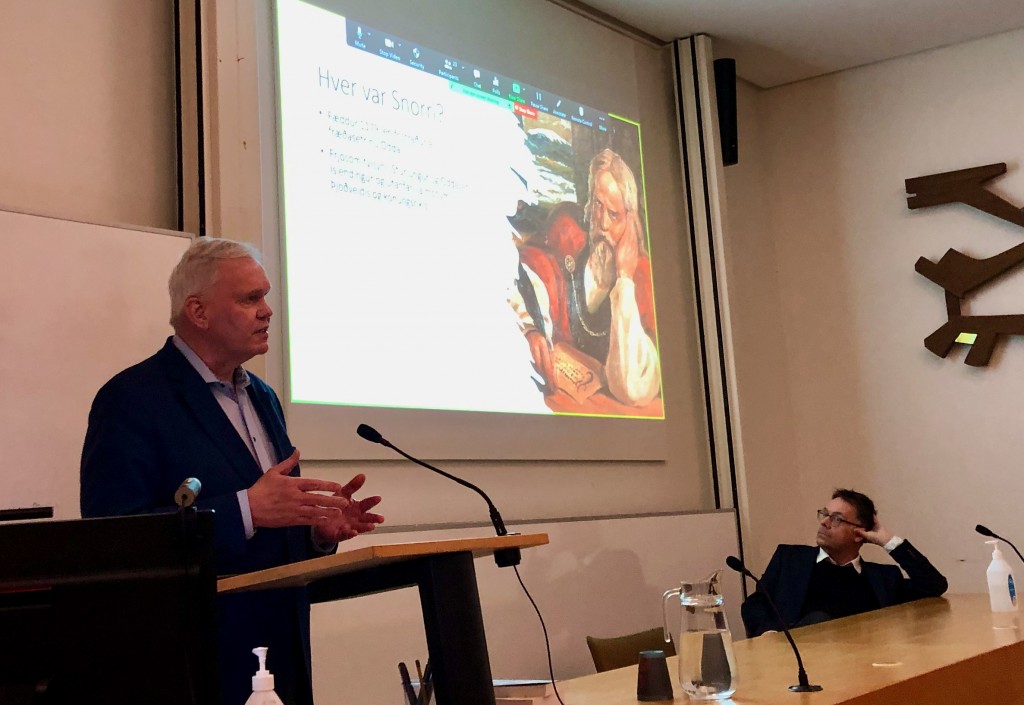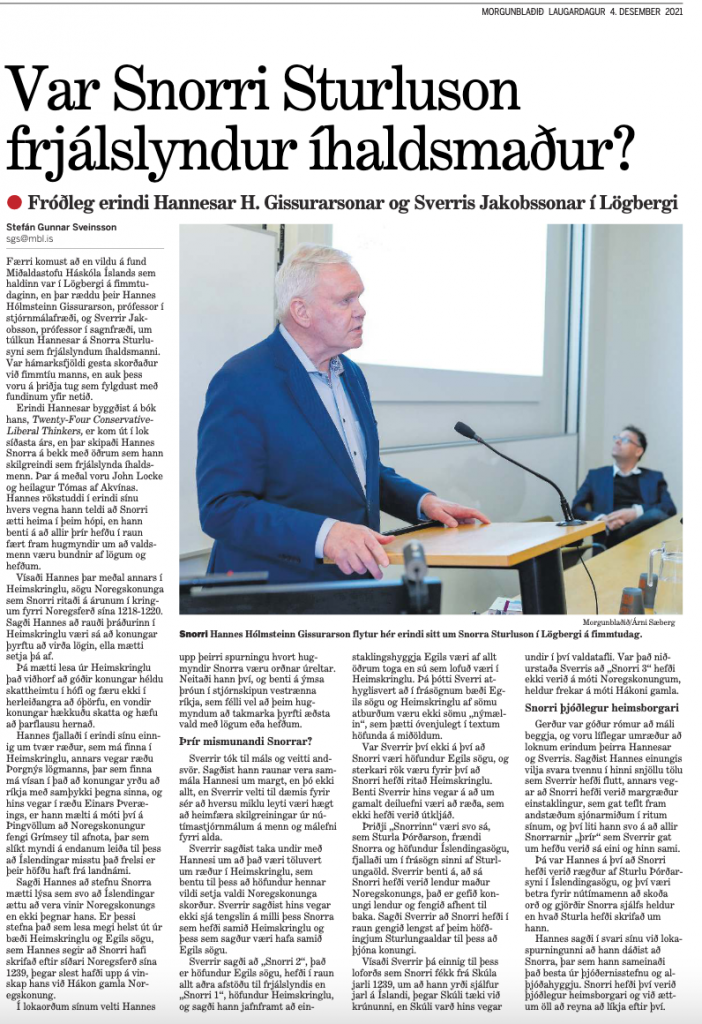The University of Iceland Centre for Medieval Studies (Midaldastofa) held a seminar 2 December 2021 on a theory, presented in Professor Hannes H. Gissurarson’s recent book, Twenty-Four Conservative-Liberal Thinkers. It is that Icelandic chronicler Snorri Sturluson could be seen as an early proponent of the conservative-liberal tradition in politics. Snorri (1179–1241) is probably the most famous Icelander who has ever lived, the author of the acclaimed Edda, on Nordic mythology and poems, Heimskringla, the history of the Norwegian kings, and Egil’s Saga, one of the best Icelandic sagas. Professor Sverrir Jakobsson commented on Gissurarson’s paper.
Gissurarson Slides (Icelandic) Reykjavik 2 December 2021
Accounts of the discussion were published in Morgunbladid on 4 December 2021 and on visir.is on 5 December.




